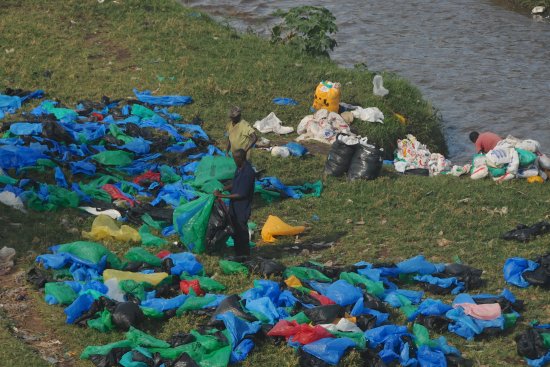
The East African nation's new law is the toughest the world has seen so far
Making, selling or even using a plastic bag is now a crime in Kenya, punishable by up to four years’ imprisonment or $40,000 in fines.
It is the latest country to put some form of regulation — ban, partial restrictions, or taxes — on the use of plastic bags, joining some over 40 other nations like China, France and Rwanada, reports Reuters. Major chain supermarkets have reportedly begun giving customers cloth bags as an alternative.
The East African nation’s new law, effective from Monday, is the toughest the world has seen so far, even allowing police officers to pursue even those carrying plastic bags around. But Judy Wakhungu, the country’s environment minister, told Reuters that enforcement will center first on bag makers and suppliers.
Plastic trash in general have long been a scourge on the global environment, creating worsening pollution — not only by their physical presence, but also by harming wildlife. Many seabirds and marine animals have been choked, strangled or stuffed to death by floating plastic bags.
Earlier this year, scientists revealed that one of the world’s most remote islands in the Pacific was lined with vast quantities of plastic.
Reuters reports that the Kenyan law’s passage took three attempts over a decade, and that there are concerns over ramifications for jobs and manufacturing, as Kenya is a major regional supplier of plastic bags.